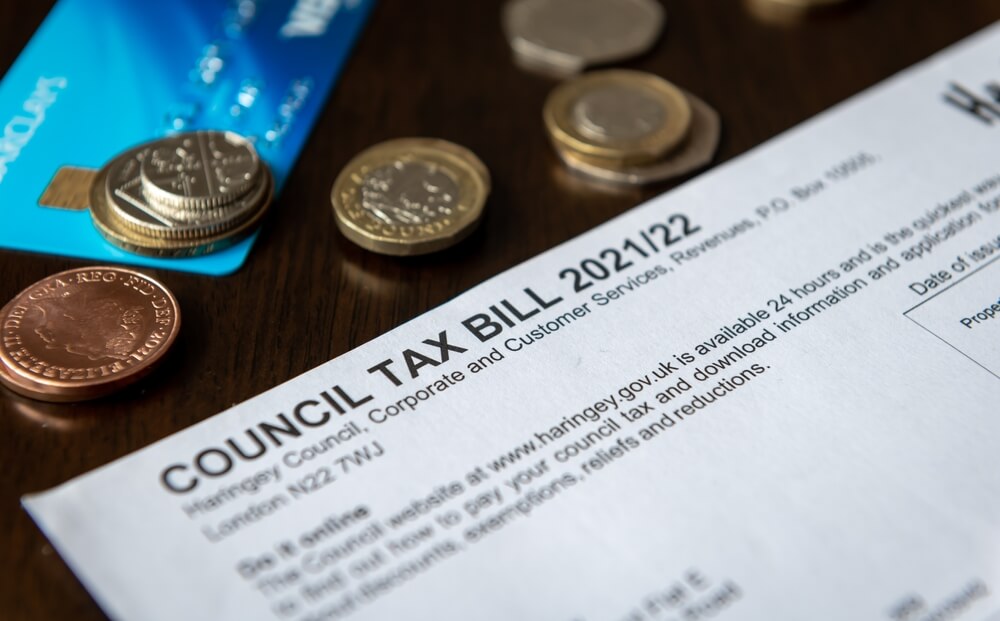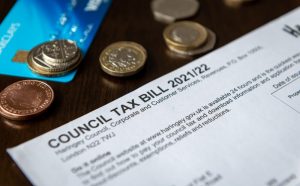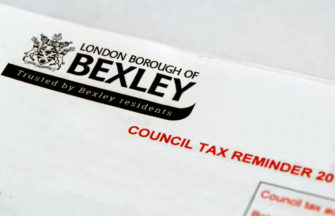There are lots of reasons you might want to cancel your council tax. Perhaps you’re moving house? Leaving the UK to live abroad? Moving into supported living or residential care?
Sadly, there are also lots of people who are so stretched by the cost-of-living crisis that they feel cancelling their council tax payment and spending the much-needed money elsewhere is the only way to make it to next payday.
Here, we’ll walk you through what council tax is and everything you need to do if you want to cancel council tax.
And don’t worry – if you’re one of the millions of people struggling to make ends meet and feel there’s no other option but to miss a council tax payment – we’ll look at some better options that won’t land you in hot water with your local council.
What exactly is council tax?
Council tax is an annual bill that is paid to your local authority (council). Almost everyone has to pay council taxes and the money it raises is used to fund a range of public services, including:
- Local police and fire services
- Rubbish collection and local waste disposal facilities
- Parks, leisure centres, and other recreational spaces
- Street cleaning
- Road maintenance
- Street lighting
You’ll get an annual council tax bill, usually payable over 10 months – with a break during February and March. Of course, you can choose to pay your council tax in a one-off payment if you wish.
How is council tax calculated?
Your council tax bill will consider lots of different factors – from you and your financial situation, right through to the property you live in and the needs of you local authority.
The biggest factor is the type of house you live in. Generally, the more your house is worth, the higher your council tax bill will be.
Why is it important to pay council tax?
Council tax is considered a ‘priority debt’ – which means the consequences for not paying can be severe.
This makes it especially important that you cancel your council tax account correctly – as mistakes could end up debt recovery action quite quickly, even if you didn’t intend on missing payments.
How to cancel your council tax
Usually, you can cancel council tax online. Every local authority has a different online portal for doing this – but a quick look at your latest council tax bill will give you all the information you need.
You’ll normally need your Council Tax Reference number to log-in. If you can’t access your local authority’s website, you can give them a call or drop in to your local council offices.
If you’re cancelling council tax when moving house, you’ll be able to enter your new address and forwarding addresses for all adults living in your current property.
If you’re moving house, you should always let your local authority know as soon as possible so they can arrange your final bill. You’ll be expected to start paying council tax through your new tax account on your next home as soon as you move – so if your previous account isn’t wrapped up, you could find yourself with a council tax overlap, which is an unnecessary expense at an already expensive time.
Cancelling council tax if you’ve moving abroad
If you’re moving to another country and selling your home or leaving a rented property, you’ll only need to cancel your current council tax bill as there’s no council tax to pay if you live outside the UK.
However, if you’re moving abroad and keeping your property vacant in the UK, you’ll need to talk to your local authority. You’ll usually be eligible for a reduction in your bill – but you won’t be able to cancel your council tax completely.
Cancelling council tax if you’re moving into care
Care homes are usually not subject to council tax, so just cancelling your current bill and settling the final payment is usually adequate. The care provider will usually be able to give you all the information you need on this.
If you’re keeping your current property, you should talk to your local authority – as you may be required to keeping paying a reduced amount of council tax.
What should you do if you cannot afford to pay council tax?
In the most recent surveys, over 6 million people in the UK were found to be struggling with ‘problem debt’ – which means they owe more money out each month than they have coming in.
If you’re one of these people, you’re not alone – and you wouldn’t be alone in looking through your bills to see which Direct Debits you could cancel and put off paying until next month.
The trouble is, when you slip behind on paying council tax, it’s often very difficult to catch up. Even if your council tax bill shows you as being on a low council tax band, a couple of missed months could easily be over £200 – which most people would find difficult to put their hands on quickly.
Before you think about cancelling a Direct Debit or Standing Order, take a look at some of the options below – it’s always better to carefully think about your options.
Option 1. Talk to your local council
Today alone, hundreds of people in your area will call your local authority and talk to them about problems with how much council tax they’ve got to pay.
When they do, they’re usually pleasantly surprised. Most people expect to be treated as an inconvenience – but this couldn’t be further from the truth. Your local council doesn’t want to make life harder for you – in fact, they’ll usually talk to you about payment options.
Most people pay their council over 10 months of the year. When you talk to your local authority’s helpline, you might find that they suggest making a reduced payment for the coming month, then spreading the remainder of the payments over 12 months, rather than 10.
Depending on how soon new council tax bills are due to be sent out, this can make a big difference.
Of course, this isn’t the only option – and different councils will have different guidelines around what they can do to help. Remember though – it’s always better to talk to someone if you’re going to struggle – and infinitely better than just cancelling your payment.
Option 2. Ask to have your council tax band reassessed
Every property in your area is allocated one of eight different council tax bands – ranging from A-H. Council tax is calculated based on lots of different factors – but the size and market value of your house plays a part in working out how much you pay.
If you feel like you’re paying more than you should be, it’s worth talking to the council about when your property was assessed and whether they think it’s worth reassessing the council tax band you’re in.
Call and speak to your council if you think there’s been a miscalculation. Mistakes do happen and just changing one or two council tax bands can make a big difference.
Option 3. Explore what discounts may be available
Some people and properties are eligible for a council tax reduction. Situations where a council may apply a reduction include:
- If you live with someone who is exempt from paying council tax
- If you live alone (or just with dependants)
- If you claim certain benefits (including Universal Credit, Employment and Support Allowance, Pension Credit, and some others)
- If you are on a low income
- If you are experiencing serious financial hardship
If you think one of these situations might apply to you, it’s well worth calling your local or visiting your local council offices to discuss your situation.
Option 4. Look at whether you’re entitled to a council tax exemption
Not everyone has to pay council tax – so make sure you’re not paying if you don’t have to.
People, groups, and properties that are exempt from paying council tax include:
- Properties that are empty due to a death
- Properties that are empty due to the occupier(s) being cared for elsewhere
- If the residents have severe mental impairments
- If all the residents are under 18
- If all the residents are full-time students
- Self-contained flats where a dependent lives
- Properties owned by charities
If you think you or your home should be exempt from paying council tax, you should speak to you local council as soon as possible. They may even be able to issue a rebate if you’ve paid when you don’t have to.
What happens if you’re struggling to pay council tax and you just cancel your payment?
Although it might be tempting to cancel your council tax payment for the month and spend the money elsewhere, you will almost certainly run into problems if you do.
First, you’ll get a notice that says your payment has not been taken and that it needs to be made as soon as possible. You’ll usually be given a 10-day period to make your payment.
If you can’t or don’t make this payment and don’t talk to the council about problems you’re having, you’ll get another letter demanding payment and taking away your ability to make monthly payments – which means you’ll have a large amount to find suddenly.
If you continue to ignore demands for payment, you’ll go through your council’s debt collection process – which can quickly lead to court action. A council may even apply to the courts for permission to take missed council tax payments directly from your wages or benefits payments.
What should you do if you think your council is treating you unfairly?
Councils have laws and guidelines to follow around collecting council tax and how they treat you if you’re struggling with payments. However, this doesn’t always mean they get it exactly right – so there are ombudsman services in place if you need to raise your complaint to a higher level or get an objective second opinion.
- In England – Local Government Ombudsman
- In Scotland – Scottish Public Service Ombudsman
- In Wales – Public Service Ombudsman for Wales




